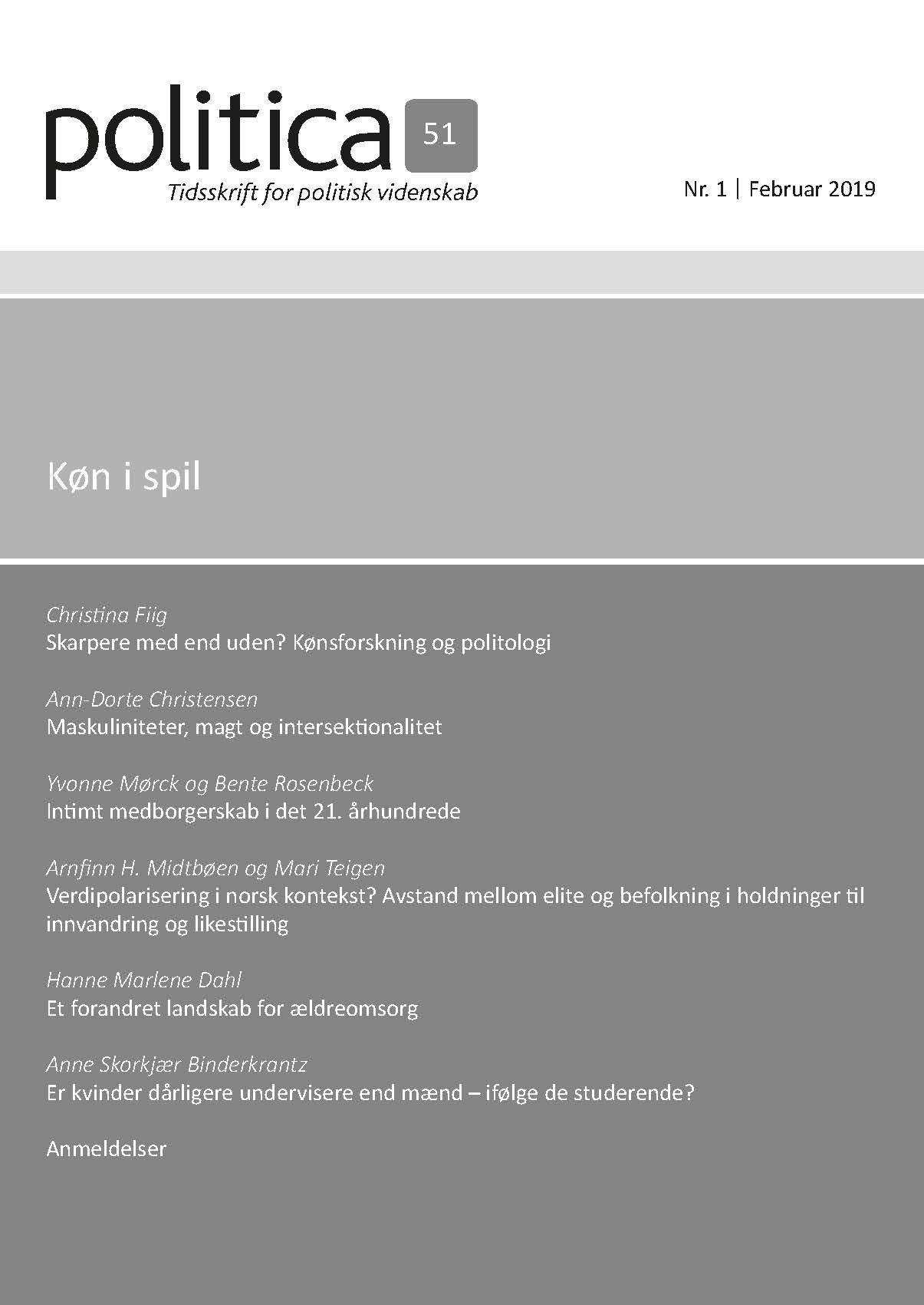Intimate citizenship in the 21st century
DOI:
https://doi.org/10.7146/politica.v51i1.131107Abstract
T.H. Marshall’s understanding of citizenship from 1950 continues to be reworked and expanded, for example with the concept of intimate citizenship. In general, the term refers to having or not having control over one’s body, feelings, relationships and identities. Intertwining the concepts of intersectionality (i.e., identifying interlocking systems of power/social stratification) and intimate citizenship offers a strong analytical approach to key challenges facing late-modern Danish society in relation to citizens’ personal and intimate lives. This applies to, e.g., violence against women in ethnic minority families, the living conditions of minority ethnic LGBT people and the rights of intersexed people. Thus, the claim to full citizenship also includes equality and sexual rights. Moreover, as the intersectional analytical approach is under continuous development, we wish to emphasize the need for more intersectionality-inspired analyses of everyday lives and practices.





